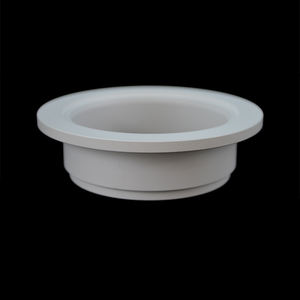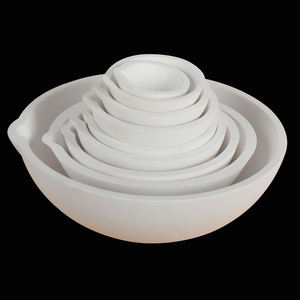Discover Premium Ceramic Products | Durability & Elegance United | Advanced Ceramics
PRODUCT PARAMETERS
Description
Introduction to Alumina Ceramics
Alumina ceramics are known for their high hardness, wear resistance, corrosion resistance, good electrical insulation and high temperature stability. According to the different alumina content, it can be divided into different grades, such as 95 porcelain, 99 porcelain, etc., among which 99 porcelain refers to ceramic materials with an alumina content of 99%. As the alumina content increases, its mechanical strength and electrical insulation properties will also increase accordingly.
Characteristics of Alumina Ceramics
High Hardness: Alumina ceramics have extremely high hardness, which makes it very wear-resistant and suitable for manufacturing abrasive tools and parts that require wear resistance.
Wear resistance: Due to its high hardness, alumina ceramics show excellent wear resistance and are suitable for manufacturing parts for long-term use.
Corrosion resistance: Alumina ceramics have good resistance to most acids and alkalis, making them widely used in the chemical industry.
Good electrical insulation: As an excellent electrical insulating material, alumina ceramics are widely used in electronic and electrical products.
High temperature stability: Ability to withstand extremely high temperatures without significant physical or chemical changes, which makes it an ideal choice for applications in high temperature environments.
Biocompatibility: In the medical field, certain grades of alumina ceramics are used to make medical devices such as artificial joints due to their good biocompatibility.
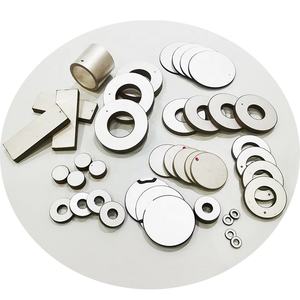
(Al2O3 Alumina Ceramic Electronic Machinable Ceramic bar Rod Stick Customized)
Specifications of Al2O3 Alumina Ceramic Electronic Machinable Ceramic bar Rod Stick Customized
These ceramic bars are made from high-purity aluminum oxide (Al2O3). They are designed for electronic and industrial applications. The material offers excellent electrical insulation. It withstands high temperatures up to 1600°C. The ceramic bars resist chemical corrosion. They are stable in harsh environments. The composition includes 95% or 99% alumina. This depends on customer requirements. Higher alumina content improves mechanical strength. It also enhances thermal performance.
The bars come in standard diameters from 1mm to 100mm. Lengths range from 10mm to 500mm. Custom sizes are available. The surface finish can be adjusted. Options include polished, ground, or as-sintered. Tolerances are tight. They meet precision engineering standards. The material is machinable in its pre-sintered state. Complex shapes are achievable. Features like holes, threads, or grooves can be added. Post-sintering machining is possible for finer details.
Thermal conductivity is low. This makes the bars ideal for heat-sensitive applications. The coefficient of thermal expansion is minimal. It ensures dimensional stability under temperature changes. Dielectric strength exceeds 15 kV/mm. Volume resistivity is high. It prevents current leakage in electronic components. Mechanical hardness is comparable to tungsten carbide. Wear resistance is superior to metals.
These ceramics are used in insulating components. Examples include circuit boards, sensors, and furnace parts. They serve in aerospace, automotive, and semiconductor industries. Customized shapes fit specific devices. Coatings like metallization or glazing can be applied. This improves bonding with other materials.
Quality control includes density checks. Density ranges from 3.6 to 3.9 g/cm³. X-ray testing detects internal flaws. Surface inspections ensure defect-free finishes. Each batch undergoes electrical and thermal tests. Performance consistency is guaranteed.
The material is chemically inert. It resists acids and alkalis. Vacuum compatibility makes it suitable for high-purity systems. No outgassing occurs. Long-term reliability reduces replacement needs. Costs stay low over the product lifecycle. Custom orders require detailed specifications. Prototypes are available for testing. Lead times vary with complexity. Bulk orders receive priority production. Technical support assists with design optimization.
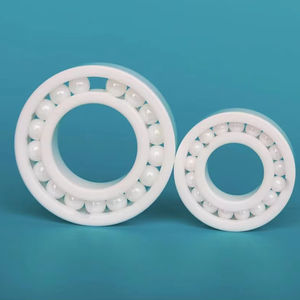
(Al2O3 Alumina Ceramic Electronic Machinable Ceramic bar Rod Stick Customized)
Applications of Al2O3 Alumina Ceramic Electronic Machinable Ceramic bar Rod Stick Customized
Alumina ceramic bars (Al2O3) serve critical roles across industries due to their unique properties. These materials withstand high temperatures, resist chemical corrosion, and provide excellent electrical insulation. Their hardness and mechanical strength make them ideal for demanding environments. Electronics manufacturers use alumina ceramic rods as insulators, circuit carriers, or substrates. They prevent electrical leakage while handling heat generated by components. In aerospace and automotive sectors, these bars act as sensors or protective housings. They survive extreme conditions without degrading.
Machinable alumina ceramics simplify production. Factories cut, drill, or shape them into precise parts without specialized tools. This reduces machining costs and time. Customized ceramic sticks fit specific device requirements. Engineers design complex geometries for semiconductor equipment or medical tools. The material’s stability ensures consistent performance in vacuum systems or high-voltage setups.
Alumina’s purity levels (96% to 99.5%) affect performance. Higher purity improves thermal conductivity and dielectric strength. This matters for high-frequency electronic applications. Lower-purity grades offer cost savings for less critical uses. Alumina bars resist wear in industrial machinery. They line surfaces exposed to abrasion or friction. Furnace components and chemical reactor parts benefit from their heat tolerance.
Customization options include varying diameters, lengths, and surface finishes. Polished rods minimize friction in moving systems. Textured surfaces improve grip in handling equipment. Manufacturers adjust alumina formulas to enhance specific traits. Additives can boost toughness or thermal shock resistance.
These ceramics replace metals or plastics where durability matters. They outlast traditional materials in corrosive or high-wear settings. Medical devices use alumina bars for non-reactive, sterilizable parts. Laboratories apply them in precision instruments. Thermal management systems rely on alumina’s ability to dissipate heat evenly.
The machinable nature supports rapid prototyping. Companies test designs before mass production. Alumina’s compatibility with coatings or metallization allows integration into electronic assemblies. It bonds well with metals for hybrid components. This adaptability makes it a go-to solution for custom engineering challenges.
Technical specifications like density, porosity, and flexural strength are tailored to project needs. Suppliers work closely with clients to match material properties with application demands. This ensures reliability while controlling costs.
Company Introduction
Advanced Ceramics founded on October 17, 2014, is a high-tech enterprise committed to the research and development, production, processing, sales and technical services of ceramic relative materials and products.. Since its establishment in 2014, the company has been committed to providing customers with the best products and services, and has become a leader in the industry through continuous technological innovation and strict quality management.
Our products includes but not limited to Silicon carbide ceramic products, Boron Carbide Ceramic Products, Boron Nitride Ceramic Products, Silicon Carbide Ceramic Products, Silicon Nitride Ceramic Products, Zirconium Dioxide Ceramic Products, Quartz Products, etc. Please feel free to contact us.(nanotrun@yahoo.com)

Payment Methods
T/T, Western Union, Paypal, Credit Card etc.
Shipment Methods
By air, by sea, by express, as customers request.

5 FAQs of Al2O3 Alumina Ceramic Electronic Machinable Ceramic bar Rod Stick Customized
Al2O3 alumina ceramic electronic machinable ceramic bars, rods, and sticks are widely used in high-temperature, electrical, and mechanical applications. Below are answers to common questions about these products.
What makes alumina ceramic suitable for electronic applications? Alumina ceramic offers excellent electrical insulation. It resists high voltages and prevents current leakage. Its stability under extreme temperatures ensures reliability in circuits, sensors, and insulators.
How high a temperature can alumina ceramic withstand? Alumina ceramic handles temperatures up to 1700°C. It maintains strength and shape without deforming. This makes it ideal for furnaces, heaters, and aerospace components exposed to intense heat.
Can alumina ceramic bars be machined into custom shapes? Yes. These ceramics are machinable using standard tools. They allow precise cutting, drilling, or grinding to meet specific designs. Customized dimensions or features are achievable for specialized industrial needs.
Is alumina ceramic resistant to chemicals? Alumina ceramic resists most acids, alkalis, and solvents. It does not corrode or degrade in harsh environments. This durability suits chemical processing, medical equipment, and semiconductor manufacturing.
How does alumina ceramic compare to other engineering ceramics? Alumina ceramic balances cost and performance. It is harder and more wear-resistant than plastics or metals. While zirconia or silicon carbide offer higher toughness, alumina remains a cost-effective choice for many electrical and thermal applications.
Alumina ceramic bars, rods, and sticks are available in various grades. Higher purity levels improve performance in demanding conditions. Customization options include different diameters, lengths, and surface finishes. Proper handling avoids cracks during machining or installation.
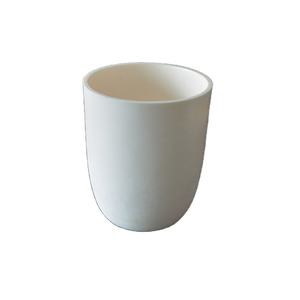
(Al2O3 Alumina Ceramic Electronic Machinable Ceramic bar Rod Stick Customized)
REQUEST A QUOTE
RELATED PRODUCTS
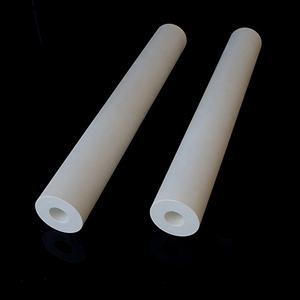
Refractory Industrial Electrical Insulation 95% Al2O3 Alumina Ceramic Tubes Aluminum Oxide Insulator
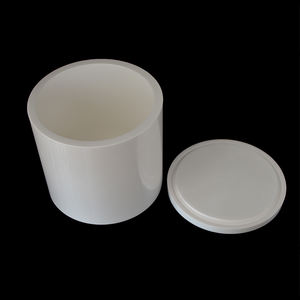
High Quality Steatite Ceramics for Industries Alumina Industrial Ceramics
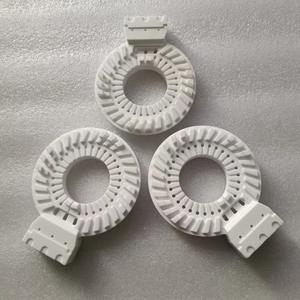
High-Performance Ceramic Tripod Alumina Ceramic for Industrial Use 95 Al2o3 Ceramic
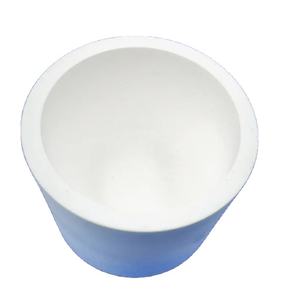
Low-Sodium Calcined Alumina Electronic Ceramics Raw Material Aluminium Oxide Stable Crystal Structure Excellent Electrical
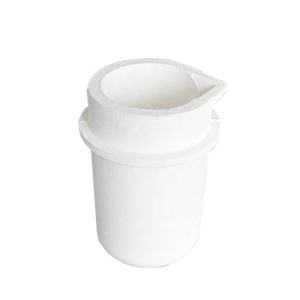
Factory Al2O3 Alumina Oxide Powder Calcined Alumina for Ceramics
